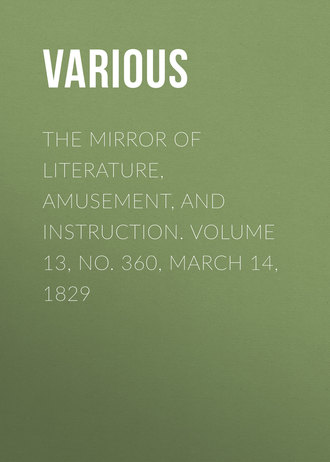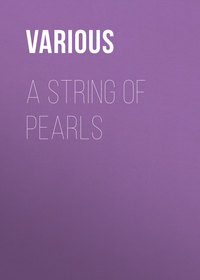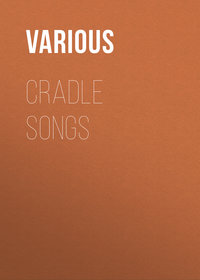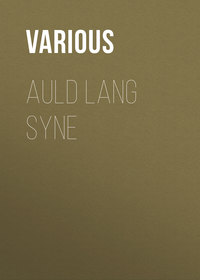
The Mirror of Literature, Amusement, and Instruction. Volume 13, No. 360, March 14, 1829
"You tell me," said Mr. Martindale, "that the old woman, Bianchi, has been dead nearly twenty years. Now, my good friend, can you inform me how long you were acquainted with this old woman before her death." "I knew her," replied the colonel, "only for about four years before she died." "And had you much intimacy with her, so as to hear her talk about former days." "Very often indeed," replied the foreigner, "did she talk about the past; for as her age was very great, and her memory was very good, it was great interest to hear her tell of ancient things; and she was a woman of most excellent understanding, and very benevolent in her disposition. Indeed, I can say that I loved the old woman much, very much indeed. I was sorry at her death." "But tell me," said Mr. Martindale, impatiently, "did you ever hear her say any thing of an infant—an orphan that was committed to her care nearly forty years ago?" At this question, the eyes of the stranger brightened, and his face was overspread with a smile of delight, when he replied: "Oh yes, much indeed, much indeed! that orphan is my wife,"
This rapidity of explanation was almost too much for the old gentleman's feelings. His limbs had been trembling with the agitation arising from thus reverting to days and events long passed; and he had entertained some hope from the language of the foreigner, that he might gain some intelligence concerning one that had been forgotten, but whose image was again revived in his memory. He had thought but lightly in the days of his youth of that which he then called folly, but more seriously in the days of his age of that same conduct which then he called vice. It would have been happiness to his soul, could an opportunity have been afforded him of making something like amends to the representatives of the injured, even though the injured had been long asleep in the grave. When all at once, therefore, the intelligence burst upon him, that one was living in whom he possessed an interest, and over whose destiny he should have watched, but whom he had neglected and forgotten, he felt his soul melt within him; and well it was for him that he found relief in tears. Surprised beyond measure was Colonel Rivolta, when he observed the effect produced on Mr. Martindale, and heard the old gentleman say with trembling voice:—"And that orphan, sir, is my daughter." He paused for a minute or two, and his companion was too much astonished and interested to interrupt him: recovering himself, he continued: "For many years after that child was born, I had not the means of making any other provision for it than placing it under the care of the old woman of whom we have been speaking. I gave her such compensation as my circumstances then allowed; and as the mother died soon after the birth of the infant, I thought myself freed from all farther responsibility when I had made provision for the infant. I endeavoured, indeed, to forget the event altogether; and as I wished to form a respectable connexion in marriage, I took especial care to conceal this transgression. However, various circumstances prevented me from time to time from entering into the married state; and having within the last twelve years come into the possession of larger property than I had ever anticipated, it occurred to me that there should be living at Genoa a child of mine, then indeed long past childhood. I wrote to Genoa, and had no answer; I went to Genoa, and could find no trace either of my child or of the old woman to whose care I had entrusted her; and I was grieved not so much for the loss of my child, as for the lack of an opportunity of making some amends for my crime. I am delighted to hear that she lives. To-morrow I will see her."
Upon this interesting disclosure hinge the principal incidents. In the course of these are some admirable pleasantries; especially a horse-race, and the description of Trimmerstone, in vol. i.; and the clerical prig, and a slight sketch of the dangle Tippetson, in vol. ii.
The Earl of Trimmerstone's portrait, after old Martindale's death is well drawn:
The Earl of Trimmerstone was depressed in spirits; it is indeed very natural that he should be. The life which he had led, the companions with whom he had associated, the disappointments which he had experienced, his foolish marriage, the disgraceful conduct of his silly countess, the taunts and reproaches of his opulent relative, the weariness and disgust that he felt in having nothing to do, and the annoyance of an empty title, which merely mocked him with the epithet of right honourable, all these things combined to render him almost disgusted with, and weary of life. His solitude was soon invaded by a visit from the Rev. Marmaduke Sprout, rector of Trimmerstone, who was rather fanatical in his theology, and finical in attire and address. He could presently render himself agreeable to any person of exalted rank by his very courteous and conciliating demeanour; and he possessed a peculiar softness and gentleness of manner, with which indeed the Earl of Trimmerstone would, in his past days of cock-fighting, horse-racing, and boxing, have been thoroughly disgusted. But his lordship was quite an altered man. Formerly, the lowest pursuits under the name of sport or fancy had been agreeable to his lordship; and every species of religious sentiment he had regarded with the profoundest contempt and the most unmingled abhorrence. But now he was sick, and weary of all these things! and because one extreme was purely offensive and wearisome, he took it for granted that the opposite must be truly delightful and highly consistent, and so under the tuition of Mr. Sprout, he changed and reversed all his habits, good, bad, and indifferent. From staking thousands at a horse-race, he turned up his eyes at the grievous abomination of half-crown whist; and, indeed, had he been disposed to card-playing, he could not have indulged himself at Trimmerstone, for Mr. Sprout had banished almost all card-playing from the place, so that there was not a pack of cards in the parish, except two or three mutilated well-thumbed packs of quadrille-cards, which were still used by a knot of antiquated spinsters worthy of the good old days of Sacheverel and High Church. Quadrille-cards will not do for whist, for all the eights, nines, and tens are thrown out. Formerly, Lord Trimmerstone used to be proud of giving some of his acquaintance a sumptuous dinner; but now he had changed all that, and he only kept one female cook, who could just manage to make a comfortable and snug little dish or two for his lordship's own self, occasionally assisted by the Rev. Mr. Sprout. Formerly, his lordship had been disposed to be lively, and oftentimes facetious; but now he was prodigiously grave, and almost sulky. Formerly, his lordship never went to church; now he went twice every Sunday, and said Amen as loud as the clerk, and with much more solemnity, for the clerk did not turn up his eyes for fear of losing the place. Formerly, his lordship had been very candid; now he had become exceedingly censorious, and he seemed to measure his religion by the severity with which he reproved transgressors. His lordship several times attempted to make all the inhabitants of Trimmerstone go to church twice every Sunday, except his own cook. But in this his lordship could not succeed, and indeed it was well for him that he could not; for if he had, the church would have been so crowded that he could not have enjoyed a great, large, lined, stuffed, padded, carpeted pew for himself.
In another portion of the MIRROR we have quoted half a dozen of the author's amenities just to show the reader that in depicting the follies of fashionable life, there is less fiddle-faddle—less rank than talent—and more sense than in many other chronicles of the ton.
SPIRIT OF THE PUBLIC JOURNALS
MAXIMS OF JOHN BULLISM
When you travel in a stage-coach, make all the passengers, both inside and outside, fully acquainted with your name, business, and objects in travelling, before five minutes have elapsed. Among the rest, be sure you give them to think you are a man of property, and the personal friend of at least half-a-dozen nobles or members of parliament. If in trade, inform them you have something very handsome in the three per cents., and live on terms of perfect familiarity with the great Jew.
Honesty is the best and most profitable policy in the long run, but there are a thousand exceptions to this rule in private practice.
Do no charity by stealth; it is never repaid in this world to any advantage; do it openly, and there are chances of its returning cent per cent.
You may keep a running horse, or two, though you are a magistrate sworn to put down gambling: you need not bet upon the race-course yourself. You may subscribe to Fishmongers' Hall, and go there without throwing the dice. You may share the profits of a roulette table, without venturing your luck. It is strange that vulgar understandings cannot discriminate in these matters!
When you have made up your mind finally to do any thing, ask the advice of your friend about it. The act of consultation will please him, and you will be none the worse.
Human happiness is more or less complete in a ratio with successful pecuniary accumulation.
If you enter a drawing-room before dinner a little time too early, and find yourself vis-à-vis with an unlucky visiter as forlorn as yourself, do not utter a word. The chances are, nine out of ten, he will not speak first, that is, if he be a true Briton. Stare at him as hard as you can.
If you meet a lady in society, old or young, married or single, who equals you in argument, or rises superior to the thousand and one automatons disgorged monthly from fashionable boarding-schools, report her a bas bleu to your male acquaintances, and warn her own sex to shun her.
When you meet an inferior in a public street, it is your duty to cut him, if any one who knows you is in sight. If you cannot escape a recognition, do it with as little parade as possible—a movement of the lips is sufficient—and walk on at a quick rate. Who knows but the Lord Mayor, or Mr. Alderman Blowbladder, may observe you?
A grain of impudence will fetch more in the market than twelve bushels of modesty.
In the scale of dignities two Cheapside chaises make one Stanhope; two Stanhopes a cab; two cabs a landaulet and pair; and so on up to the state-coach; and as their numerical relation, so is the degree of respect they may justly exact.
If you visit foreign parts, and meet a countryman who may be useful to you, do not hesitate to avail yourself of his services; but be sure never to acknowledge him should you meet in your native land, unless he receive some other introduction to you, and you have it on creditable evidence that he is a man of good property.
Never allow reason weight in any thing you have resolved to be right that is opposed to it. Reason may be useful in mathematics, to men of genius, and to scholars; but it has little to do with every-day existence, with the Three per Cents, the national revenue, the Stock Exchange, or the India House.
Never get acquainted with your next-door neighbour, unless you find he is in good pecuniary circumstances. If you meet on the highway, or touch elbows at your respective fore-doors, look at each other like two strange tom-cats, and pursue your way.
Commiserate the fate of a Thurtell, a Probert, or a Corder, sent (ripened for heaven in a forty-eight hours' probation by a Newgate chaplain) out of the world their hellish acts have so sullied; but sympathise not with a Riego or a Canaris. Heroic vice was always spiriting; heroic virtue is phlegmatic. John Bull's constitution is only acted upon by strong excitement.
When you dine with the Lord Mayor, or any of the Aldermen of Brobdignag, and they attempt to exhibit their skill at repartee, be sure decide the wealthiest to be the wittiest. It will insure you a good dinner another time, perhaps something more.
In choosing a wife, prefer even Bristol ugliness to beauty, especially if there be a fortune. Beauty will change, intellect may be too much for you, but ugliness will be true to you as to itself; besides its advantage of preserving you from the effects of conjugal frailty.
A judge's wig is a Delphic mystery, whether brains be in it or not. It is a of sublunary wisdom—an umbrella over an oracle.
When you dine at a public dinner, always take your seat opposite a favourite dish. Carve it yourself, and select the choicest bits, then leave it to your right-hand neighbour to help the rest of the company.
Always stick your napkin in your button-hole at the dinner table, if you admit such French superfluities at all. Eat with the sharp edge of your knife towards your mouth; forks won't take up gravy. Never wipe your lips when you take wine with a lady, and fill both her glass and your own until daylight is not visible through the crystal.
When Mrs. Bull is obstreperous, go to the coffee-house and call for your glass. It is an excellent cure for her complaint, and you will get the latest news retailed in the most engaging manner, with the pleasure of knowing she is biting her lips at home in vexation.
Never hold any intercourse with people of whom the world speaks ill. 'Tis true they may be, and generally are, among the very best of mankind, but as they are not reputed to be so, what is that to you?
Some persons cant about the wickedness of the times: believe them not; this is the most saintly of ages, the most pure of generations, considering its temptations.
Vice at the east and west end of town, is different only in form; in substance it comes to the same thing, and in quality is equal to a grain.
Never leave a dispute to be settled by arbitration; if you are rich, always appeal to law, especially if your opponent be poor. The lawyers will manage for you long before the case gets up to the Lords, and perhaps secure your rival in banco regis for expenses. In an arbitration, the case may be decided against you in a twinkling. It is a capital thing that justice and a long purse are sworn brothers; besides, moneyed men should have some advantage in society.
So little is the value of an oath understood by any but the Bull family, that none but the postboys and the vulgar use oaths in foreign nations, America excepted; but that country being a chip of the old block, already rivals honest John; outdo him she must not.
Lard your butter, wet your tobacco, pipe-clay your flour, sand your sugar, sloe-leaf your tea, coal-ash your pepper, deteriorate your drugs, water your liquors, alloy your gold and silver, plunder your lodgers, and, while none know it, who is the worse! Then to church, and thank God you are not as other men.
Live and talk as if you were to live for ever. If you have accumulated tens of thousands, try and make them hundreds of thousands. Why should you retire and make way for the industry of others, while you are able to treasure up more.
Give credit, take credit, live upon credit; if you are wealthy, your own money will be gathering interest at the same time. If you are poor, you have no other means to live by.
In matters of business, let there be no favour. If you are dealing with your own father, give nothing to him. Screw the uttermost farthing, and, if need, sell him.
Give only to receive.
Men of genius are fools; the truly great men know how to make money, and money is power—the power of making more money. Your men of genius are at best but harlequins with empty pockets.—New Monthly Magazine.
THE GATHERER
A snapper up of unconsidered trifles.SHAKSPEARE.THE OPERA
Swift, in his Journal to Stella, speaking of the Opera says, "In half an hour I was tired of their fine stuff."
FAUSTINA and CUZZONI, two celebrated opera singers, were such bitter rivals, that neither of them would sing in the same room with the other.
CATS
Four learned cats are now exhibiting in Regent-street; but as we have not yet left our card with their feline excellencies, we cannot wink at their perfections.
SHERWOOD AND ROBIN HOOD
The officers of Sherwood Forest, famous for having been the head-quarters of Robin Hood in the 16th century, were a warden, his lieutenant and steward, a bow-bearer, and a ranger, four verderers, twelve regarders, four agisters, and twelve keepers or foresters, all under a chief forester; besides these there were several woodwards for every township within the forest, and one for every principal wood.
HALBERT H.The late Duke of Norfolk passing down Piccadilly with Sheridan, as a gigantic wooden Highlander was just then fixing at the door of a tobacconist, asked, what was the reason of this usual location. "Ay, ay, I see it now," said the duke, "it is as much as to say, bargains here, a man may get the most for his farthing." "No," said Sheridan, "it seems quite the contrary, for if the Scotchman could have driven any thing in the way of bargain, he would have gone in."
A Mrs. Tomlinson is mentioned in the papers as having, lately died, worth thirty thousand pounds, chiefly amassed by habits of extreme penury. She had, before this accumulation, separated from her husband, to whom she handsomely allowed five shillings a-week. This was observed to realize the often-repeated saying of Solomon—"A virtuous woman is a crown to her husband."
SUGAR MADE FROM RAGS
The compiler of a Catechism of Chemistry up to the latest date, says, "It is a remarkable fact, that a pound of rags may be converted into more than a pound of sugar, merely by the action of sulphuric acid. When shreds of linen are triturated (stirred) in a glass mortar with sulphuric acid, they yield a gummy matter on evaporation; and if this matter be boiled for some time with dilute sulphuric acid, we obtain a crystallizable sugar."—Now is the time to look up all your old rags, &c.
A choral society, consisting of 160 members, has just been established at Breslau, for the cultivation of ancient music.
JOHN OF GAUNT
There is a curious tradition respecting the estate of Sutton Park, (the seat of Sir J. Burgoyne.) near Biggleswade, Bedfordshire, which states it formerly belonged to John of Gaunt, Duke of Lancaster, who gave it to an ancestor of the present proprietor, named Roger Burgoyne, by the following laconic grant:—
I, John of Gaunt,Do give and do grantTo Roger Burgoyne,And the heirs of his loin,Both Sutton and Potton,3Until the world's rotten.There is also a moated site in the park, called "John of Gaunt's Castle."
J.H.With the present Number is published a SUPPLEMENT, containing THREE ENGRAVINGS: 1. The Death-Watch. 2. The Glow-Worm. 3. The Talipot Tree, and a series of other curious and attractive Wonders of Nature—The First and Last Crime, a vivid and masterly sketch—Public Improvements now in progress in London—besides an unusual variety of Literary Novelties.
1
An account of the original instigator of the Crusades will be found in vol. viii. of the MIRROR, page 232.
2
The Turks generally show some regard to real piety and valour.
3
A neighbouring village.









